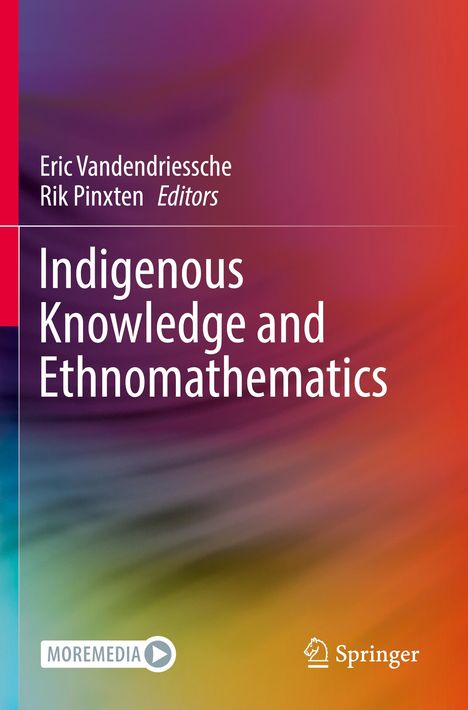Indigenous Knowledge and Ethnomathematics
Indigenous Knowledge and Ethnomathematics
Buch
- Herausgeber: Rik Pinxten, Eric Vandendriessche
- Springer International Publishing, 02/2024
- Einband: Kartoniert / Broschiert, Paperback
- Sprache: Englisch
- ISBN-13: 9783030974848
- Artikelnummer: 11766796
- Umfang: 300 Seiten
- Nummer der Auflage: 24001
- Auflage: 1st ed. 2022
- Gewicht: 458 g
- Maße: 235 x 155 mm
- Stärke: 17 mm
- Erscheinungstermin: 15.2.2024
Achtung: Artikel ist nicht in deutscher Sprache!
Weitere Ausgaben von Indigenous Knowledge and Ethnomathematics
Klappentext
The book presents a series of ethnographic studies, which illustrate issues of wider importance, such as the role of cultural traditions, concepts and learning procedures in the development of formal (or mathematical) thinking outside of the western tradition. It focuses on research at the crossroads of anthropology and ethnomathematics to document indigenous mathematical knowledge and its inclusion in specific cultural patterns. More generally, the book demonstrates the heuristic value of crossing ethnographical, anthropological and ethnomathematical approaches to highlight and analyze or "formalize" with a pedagogical outlook indigenous mathematical knowledge.The book is divided into three parts. The first part extensively analyzes theoretical claims using particular ethnographic data, while revealing the structural mathematical features of different ludic, graphic, or technical / procedural practices in their links to other cultural phenomena. In the second part, new empirical studies that add data and perspectives from the body of studies on indigenous knowledge systems to the ongoing discussions in mathematics education in and for diverse cultural traditions are presented. This part considers, on the one hand, the Brazilian work in this field; on the other hand, it brings ethnographic innovation from other parts of the world. The third part comprises a broad philosophical discussion of the impact of intuitive or "ontological" premises on mathematical thinking and education in the light of recent developments within so-called indigenously inspired thinking. Finally, the editors conclusions aim to invite the broad and diversified field of scholars in this domain of research to seek alternative approaches for understanding mathematical reasoning and the adjacent adequate educational goals and means.
This book is of interest to scholars and students in anthropology, ethnomathematics, history and philosophy of science, mathematics, and mathematics education, as well as other individuals interested in these topics.

Indigenous Knowledge and Ethnomathematics
EUR 142,37*

